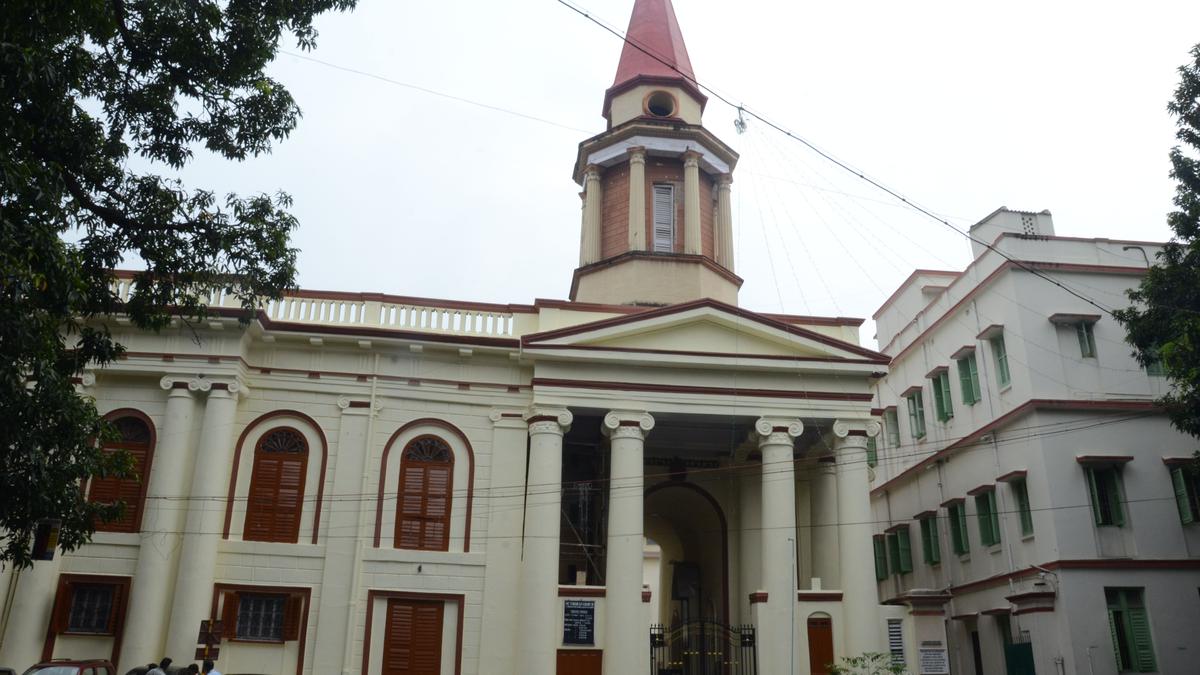
Facing backlash over admission criteria, Loreto College apologises to ‘people of Bengal’
The Hindu
Severe public backlash on social media has forced Kolkata’s Loreto College, which had recently announced that non-English medium students had no place in the institution, to extend an unconditional apology to the “people of Bengal”.
Severe public backlash on social media has forced Kolkata’s Loreto College, which had recently announced that non-English medium students had no place in the institution, to extend an unconditional apology to the “people of Bengal”.
“Loreto College has a rich legacy of service and all-around education for over 100 years in Bengal. The recent admission policy notice does not reflect the values we cherish. It is an unintended error from our side. [We] unconditionally apologise to the people of Bengal and revoke the said admission policy notice with immediate effect. We recommit ourselves to serving all of Bengal as we have always done,” the premier college said in a statement uploaded on Tuesday afternoon.
This statement comes after a note of apology issued late on Monday evening, which did not impress those angry with the college for openly announcing that it would not admit students who had done their schooling in the vernacular medium.
Monday evening’s statement had said: “The college apologises for inadvertently hurting the sentiments of the students. It was not the intention to discriminate against any student from any background. There was a reason for giving out preferences to students from English-medium schools. It was observed by teachers that students who come from schools where the medium of instruction is not English face difficulty in following the lectures. Hence, it was a practical consideration.”
A teacher from the college, who did not want to be named, told The Hindu: “[Monday’s apology] reinforces the same discriminatory note which was there in the notice. And what do they mean by ‘inadvertently’? A college has to be more alert and sensitive to such issues. Not to talk of the falsity in the apology —when did teachers ever say anything [about non-English medium students facing difficulty]?”
The original notice of Loreto College, which it uploaded while announcing admissions to its undergraduate courses, had said: “From previous experience, we strongly recommend that candidates hailing from vernacular medium schools opt to study in institutions where the medium of instruction is bilingual. Students whose medium of instruction in Class XlI was the vernacular have not been considered for admission.” This now stands replaced with the latest apology.
“English in India is a matter of caste and class privilege. Loreto College clearly indicates which students it does not want. Will they refund the ₹300 application fee then?” asked Prof. Samata Biswas of Sanskrit College and University in Kolkata.

“Writing, in general, is a very solitary process,” says Yauvanika Chopra, Associate Director at The New India Foundation (NIF), which, earlier this year, announced the 12th edition of its NIF Book Fellowships for research and scholarship about Indian history after Independence. While authors, in general, are built for it, it can still get very lonely, says Chopra, pointing out that the fellowship’s community support is as valuable as the monetary benefits it offers. “There is a solid community of NIF fellows, trustees, language experts, jury members, all of whom are incredibly competent,” she says. “They really help make authors feel supported from manuscript to publication, so you never feel like you’re struggling through isolation.”

Several principals of government and private schools in Delhi on Tuesday said the Directorate of Education (DoE) circular from a day earlier, directing schools to conduct classes in ‘hybrid’ mode, had caused confusion regarding day-to-day operations as they did not know how many students would return to school from Wednesday and how would teachers instruct in two modes — online and in person — at once. The DoE circular on Monday had also stated that the option to “exercise online mode of education, wherever available, shall vest with the students and their guardians”. Several schoolteachers also expressed confusion regarding the DoE order. A government schoolteacher said he was unsure of how to cope with the resumption of physical classes, given that the order directing government offices to ensure that 50% of the employees work from home is still in place. On Monday, the Commission for Air Quality Management in the National Capital Region and Adjoining Areas (CAQM) had, on the orders of the Supreme Court, directed schools in Delhi-NCR to shift classes to the hybrid mode, following which the DoE had issued the circular. The court had urged the Centre’s pollution watchdog to consider restarting physical classes due to many students missing out on the mid-day meals and lacking the necessary means to attend classes online. The CAQM had, on November 20, asked schools in Delhi-NCR to shift to the online mode of teaching.









